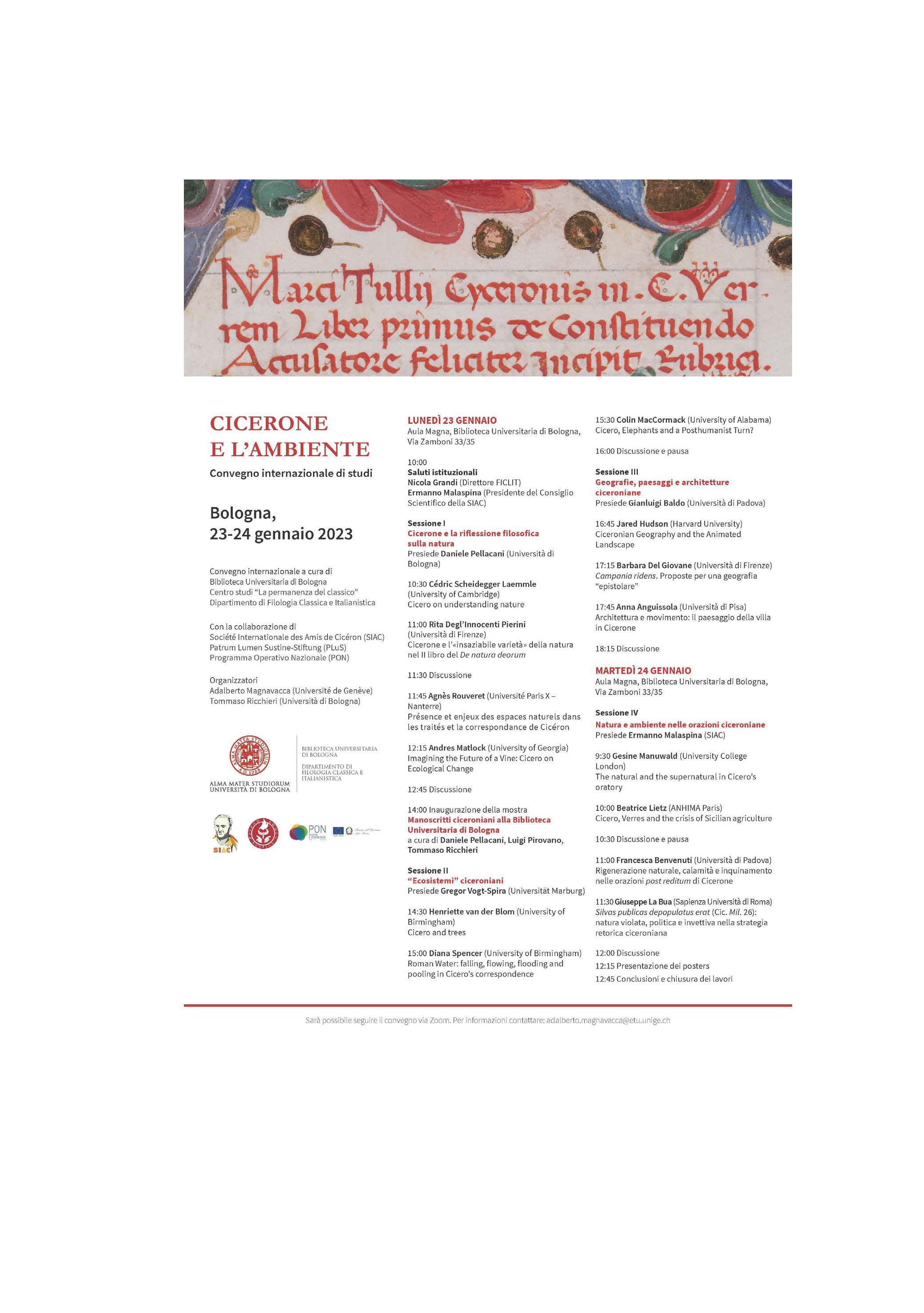Cicero and Political Trees
DOI:
https://doi.org/10.13135/2532-5353/9340Abstract
Cicero used and represented trees for a variety of purposes, but this article focuses on Cicero’s attitudes to political usage of trees within a wider context of “botanising rulers”, triumphing trees, Roman euergetism and spectacle, and sacred trees. Starting with trees within a Roman political-military context (Lucullus, Pompey and Cicero), then within the political-religious context (including the ficus Ruminalis), and finally Cicero’s ideas of and engagement with Pompey’s triumph and theatre complex. I argue that Cicero’s arboreal attitude depended on his attitude to the notions and relationships the trees were made to symbolise, and how these related to his own notions of correct Roman elite behaviour.
Downloads
Downloads
Published
How to Cite
Issue
Section
License
Authors who publish with this journal agree to the following terms:
- Authors retain copyright and grant the journal right of first publication with the work simultaneously licensed under a Creative Commons Attribution License that allows others to share the work with an acknowledgement of the work's authorship and initial publication in this journal.
- Authors are able to enter into separate, additional contractual arrangements for the non-exclusive distribution of the journal's published version of the work (e.g., post it to an institutional repository or publish it in a book), with an acknowledgement of its initial publication in this journal.


 Ciceroniana On Line is recognised by ANVUR (the National Agency for the Evaluation of the University System and Research) as a CLASS A journal for the Sciences of Antiquity, Philology, Literature and History of Art (
Ciceroniana On Line is recognised by ANVUR (the National Agency for the Evaluation of the University System and Research) as a CLASS A journal for the Sciences of Antiquity, Philology, Literature and History of Art ( The journal is included in DOAJ. The DOAJ listing of the journals is available at
The journal is included in DOAJ. The DOAJ listing of the journals is available at  The journal is indexed in
The journal is indexed in  The journal has been included in ERIH PLUS. The ERIH PLUS listing of the journals is available at
The journal has been included in ERIH PLUS. The ERIH PLUS listing of the journals is available at 

